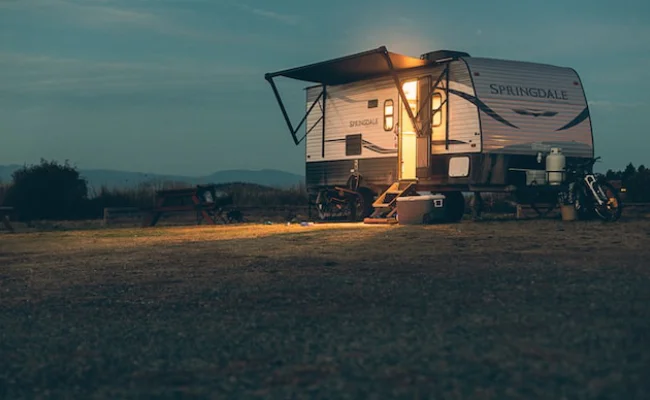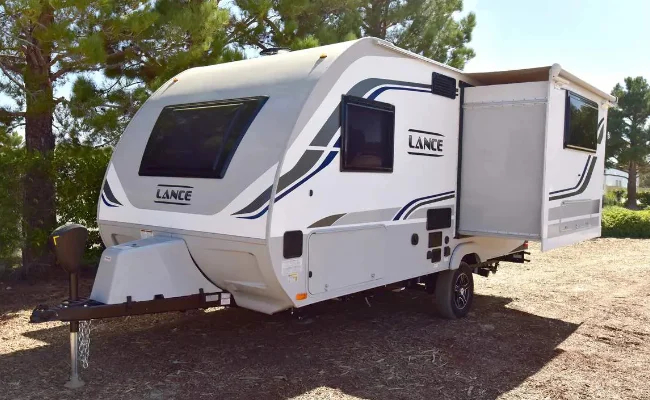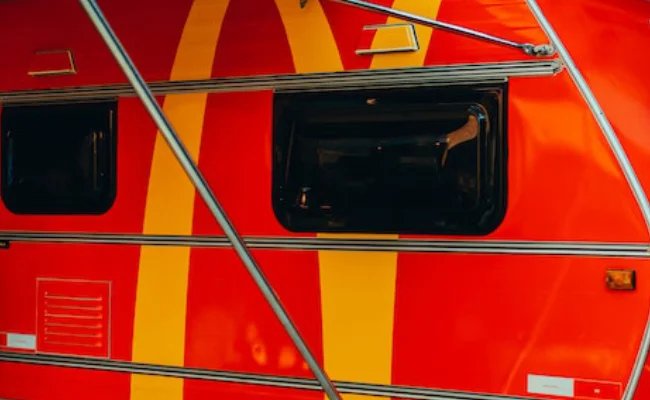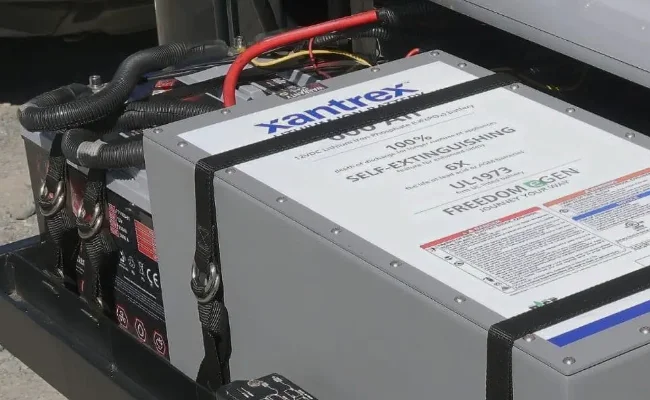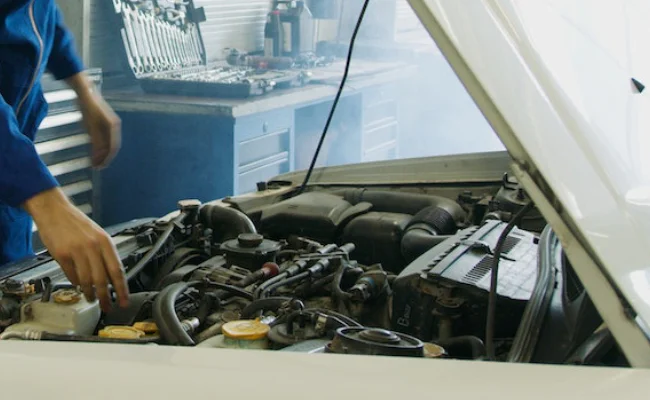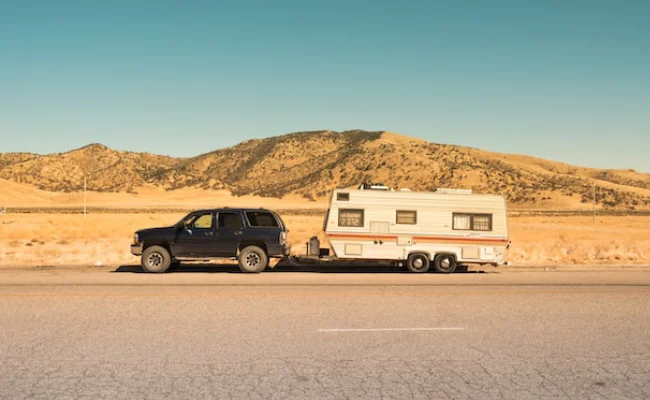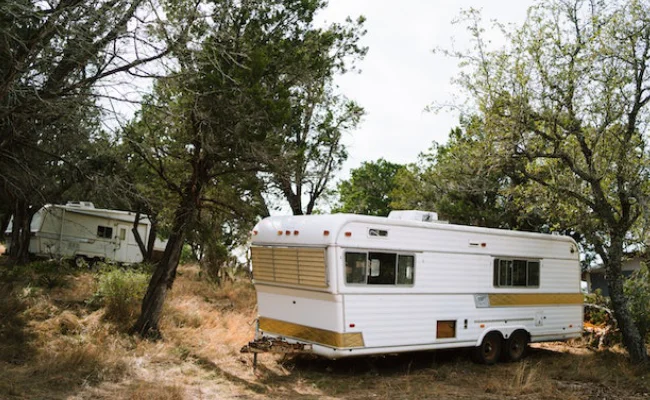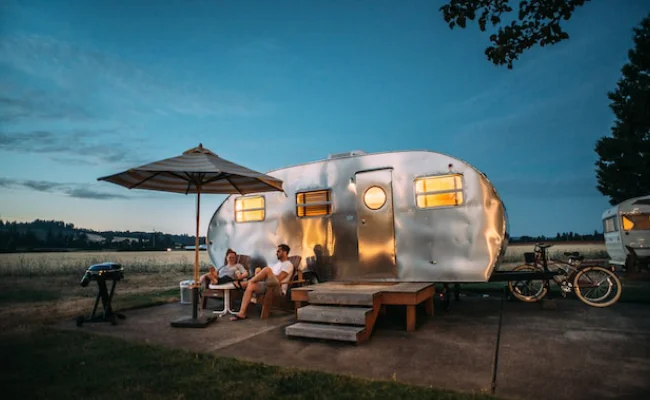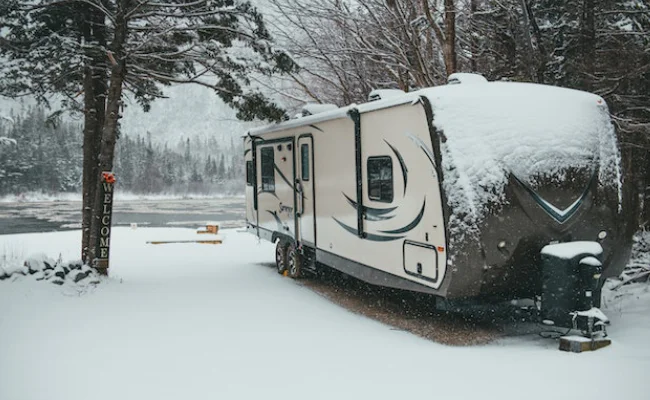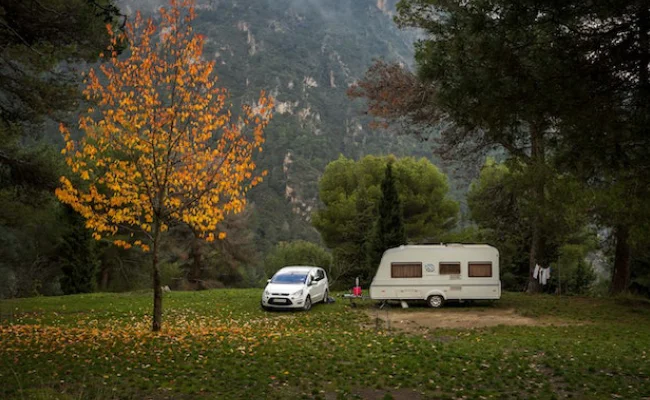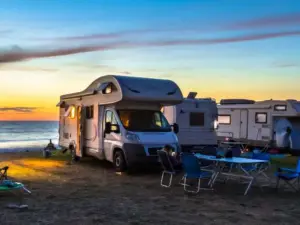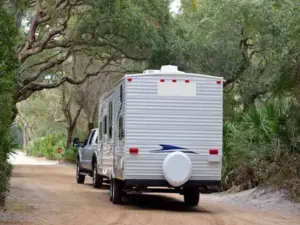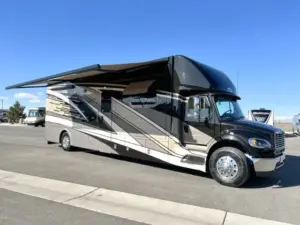Standard travel trailer maintenance can save you from costly repairs and unwarranted headaches. Especially if you are willing to learn a few tricks so that you can perform routine inspection on demand. There is absolutely no reason for your trailer to break down because of issues that could’ve been avoided through basic RV or travel trailer care.
But no worries! We’ve created this universal checklist for you to have a reliable starting point as you build up your own routine. To highlight what you can do immediately, we’ve even separated these tips and reminders according to general maintenance guidelines and timing. To start things off, here are some RV and trailer care that we recommend for you to accomplish right before your next departure.
Read here for tips on purchasing a travel trailer.
Read here to learn about travel trailer accessories.
Travel Trailer Inspection Before Your Trip
Preventive maintenance is the primary focus of the routine inspection that owners execute right before any road trip. These steps vary depending on your trailer’s customization and features, but you’ll generally want to prioritize checking on components prone to wear and tear such as tires and bearings, electrical connections, water heater service, and external seals.
Read Your Manual for RV or Trailer Maintenance Tips
Most general maintenance tips can be found in the owner’s manual. There are plenty of upsides if you can keep a properly maintained RV or trailer yourself as this can help solve simple faults at an early stage and lead you away from expensive repairs.
If you haven’t created a checklist for your maintenance routine, you can always start with the manual that came with your unit. It’s extremely important that you are at least able to recognize basic flaws in your tire, fuel levels, and wiring before going on your merry road trip.
Check Your Tire Pressure and Wheel Bearings
We advise you to check tire pressure every travel day and allocate a thorough inspection monthly for optimum safety. Remember that it isn’t enough to give the trailer or RV tires a visual inspection, you’ll also want to check for tire pressure changes so that you can adjust to the correct pressure before hitting the road. When self-testing, you may purchase a tire pressure monitoring system (TPMS) for accurate readings.
Your vehicle’s wheel bearings are typically hidden but that doesn’t mean that you can keep ignoring them. For starters, you need to ensure that these parts are in good condition and don’t require any replacement.
Secondly, check if there’s proper grease around it. Since the grease breaks down over time, it’s on you to take a quick inspection to see if there’s enough to maintain traction.
Check the Electrical Connection From the Trailer to the Tow Vehicle
Tow vehicle wiring is sometimes neglected even by experienced users. But for best practice, you should ensure that all electrical wiring from your travel trailer to your towing components and vehicle is stable and free from external damage.
Pack and/or Repack Your First Aid Kit and Toolbox
Some people prefer to replenish their kit during monthly or seasonal maintenance. But since owners don’t share the same volume of activities and travel frequency, we recommend simply checking your first aid kit and toolbox every time you are about to go on a road trip.
Monthly RV or Trailer Maintenance
Next up, we recommend the following maintenance tips for monthly check-ins! You’ll notice this section is a lot busier because you will typically have registered a few trips by the end of each month. As such, it’s only natural to take more precautionary measures so that you can stay ready for whatever is up ahead.
Check and Repair Roof Seals As Needed
There’s never any harm in staying by the book when it comes to safety. As such, it’s best practice to inspect your camper every 30 days. But don’t hold yourself back in performing a hot fix whenever needed. If you can make adjustments as soon as you spot any irregularities, the better.
You can start inspecting the window seals from the inside and the corners of the interior. Then you can move to the external parts including the roof. The sealant you will to use will depend on the material that needs a touch up.
Clean and Lubricate Your Slide-Outs
A trailer or RV slide is a common feature these days. They’re nice to have in many ways but like everything else in your camper, it’s a component that must be checked regularly for maintenance.
Different types of slide-out will require different care. So, please refer to your manufacturer’s recommendations from the owner’s manual before you proceed. After you determine the right lubricant for your unit, you can then start applying the solution to exposed gears such as racks, cables, and rollers. The manual will also indicate if there are additional areas that needs to be lubricated.
It’s good to be proactive in identifying small problems before they become significant, but as with any machine, you want to proceed with care and accuracy when it’s time to take action.
Check Your Batteries and Engine
This is one of the most important yet easy to miss steps in any regular check up—RV batteries! In general, you want to have scheduled routine maintenance to keep the trailer’s or RV’s batteries in the best shape and extend their life.
Even when the battery is discharged, you have to be conscious that you cannot leave this component in a low-state-of-charge for a long period as it can damage the battery or even ruin it. As you will find yourself on the move frequently, we recommend to also watch out for changing weather conditions and overheating that can affect your battery’s condition.
For your engine, it’s paramount to make an immediate inspection whenever the trailer or RV check engine light is lit up. Common issues that will trigger this warning include loose or damaged gas caps, damaged spark plugs, faulty analytic converters and more. Consult with an expert if you are unable to trace the trigger of the alert by yourself.
Check Hoses, Clamps and Fluid Levels
Whether you have a motorized trailer/RV or a tow vehicle, checking hoses, clamps, and fluid levels must be on top of your checklist before heading out. At the very least, conduct monthly inspections and maintenance to spot possible problems at an early stage.
Make sure hoses and clamps are secure and that there are no leaking. Top off coolant, oil, brake and wiper fluids.
Ideally, you want to be knowledgeable in doing some of these steps yourself. Otherwise, an expert eye would serve you well as long as you can keep a working schedule. Alternatively, keep the owner’s manual handy so that you can execute performance checks on your own in scenarios where it can’t be avoided.
While you’re at it, take the time to pack and/or repack your emergency toolbox.
Run and Service Your Generator
A generator is your best friend when you’re off the grid and away from usual power sources. It’s also definitely a life saver if you’re caught in the middle of a power outage.
While it’s generally an emergency component of your kit, a portable or preinstalled generator also requires regular maintenance. Run your generator every month to keep it in shape.
Clean Your AC Unit and Ventilation System
Since your camper trailer will occasionally be your home, you’ll definitely want to maintain proper ventilation as much as possible. Just don’t forget to turn the thermostat off before you start poking around your air conditioning, ventilation system, or RV roof.
If you want to clean the AC manually, you’ll need to have at least a coil cleaner, coil comb, and compressed air on the ready. After turning the power off, you can then inspect the air filters. Most of the time, you just need to clean this part and make sure it’s not clogged. You can do this every month or every three months depending on how frequent you’re out on the road.
If find additional concern upon visual inspection or if there’s a noticeable dip in performance from your AC, you can take it to the shop to have condenser and evaporator coils checked. Otherwise, you can clean these components using the tools we’ve mentioned above.
As a trailer or RV owner, it’ll be more beneficial in the long run if you can perform standard checks yourself as problems in this area can arise even amidst your travels. Otherwise, you want to tip your local mechanic to include air conditioning and vents in the regular inspection if they haven’t already done so.
Test Your Detectors
A good practice would be testing your built-in or portable detector each month. Some detectors you might want to consider for your RV safety are propane, carbon monoxide, or smoke detectors. If you’ve had the tracker stored for a while, you’ll also want to check for equipment’s expiration date to ensure that you’re not hitting the road using a phased-out device.
Check for Pests
Pest infestation signs vary from obvious to something very subtle. If an eye test doesn’t point you to anything over the top, then you might want to check for unwanted smells, look out for allergic reactions, or scan for traces of slime, broken fragments, or debris that isn’t from natural wear and tear.
Seasonal Travel Trailer Maintenance
Semi-annual maintenance is that big scheduled inspection typically done at least twice every year. In some cases, you can also move some of these actions to a more frequent schedule.
Wash and Wax Your Exterior
It’s recommended to bring your unit for wash and wax service at least twice a year for it to be properly cleaned all year round. This is also a perfect opportunity to consider deep cleaning your RV’s interior and attachments as well as replacing your awning fabric when necessary.
Cleaning your trailer from the inside out is a tall task. For one, some components may require special care or solutions you do not have immediate access to. For example, rubber roofs typically need a specialized rubber cleaner. Roof vents, on the other hand, are best washed and steamed to fully remove contaminants and allergens.
Do a Thorough Damage Check
A thorough inspection can be a seasonal or more frequent step depending on your availability or preference. In most cases, this process can be semi-annual if you can regularly inspect and maintain your RV or trailer throughout the year.
A thorough damage check can include an assessment of interior and exterior fittings, roof inspection, electrical wiring, and more. Ideally, you also would want to perform this step before the winter months since drastic weather changes can make wear and tear worse for damaged parts.
Get an Oil Change
Oil change is a critical step in the vehicle and RV maintenance. While most maintenance checks can be executed in your local shop, getting your oil changed for your trailer may not be as straightforward because it can be considered a specialized process.
Some owners prefer to push their units to the limit while others book a scheduled service in advance. If you are unsure when is the best time to get the oil changed for your trailer, then we strongly advise you to seek manufacturer’s recommendations for reference. You can also ask your trusted service centers who might suggest changing your oil every 3,000 to 5,000 miles. This figure however is largely subjective.
Replacement and Repair
Seasonal maintenance is a great time to push for air, fuel, coolant, and hydraulic filter replacement. This is, of course, contingent on the results of the prior inspection. Depending on mileage, air filter can be clogged quickly or rather slowly.
Aside from the aforementioned components, you may also need fresh water tanks and RV water heater, new roof seals, updated roof materials, hydraulic filter replacement, and more. It doesn’t mean that you will have to make fixed upgrades every seasonal maintenance, but it’s likely that some of your components may need a retouch or a full replacement.
Check and Deep Clean Your Appliances
Don’t forget to inspect and clean your appliances while your trailer is out for service. After all, any time you bring a home appliance and connect it to your RV or trailer, these equipment essentially become part of your mobile home. It isn’t enough that your travel trailer is in tip top shape, all the appliances that you’re bringing along for the ride should also be in perfect working order.
Weigh Your RV
Weighing your trailer or RV should be on your semi-annual or yearly checklist. This is something you can accomplish easily by visiting your local truck stop. Meanwhile, you can look to your manual for your unit’s specification and weight ratings. Most trailers will also have a sticker indicating these details for easier access.
Ideally, you should strive to do this twice a year. But why you wonder? Regardless of your trailer’s make and model, they will always be subject to weight limits. If you’re not being mindful of your unit’s weight rating, you’re not only at risk of damaging your mobile home but also putting yourself and your passengers in jeopardy.
There is an optimal weight recommended for each trailer. This will affect the RV’s mobility, stopping power, and balance. All of which are important to keep you safe on the road. Additionally, your insurance claim can be voided if it turns out that you’re overweight.
Annual Travel Trailer Maintenance
Finally, we are onto the list of things that you can hold-off until annual maintenance checks. But for your safety, never for much longer!
Service Your Heating and Cooling Solutions
Get your heating and cooling system inspected and tuned up by a professional yearly. This will help avoid any breakdowns and ensure everything is in good working condition throughout the year.
Service Your Brakes
While you’re always checking your breaks and fluids before every trip, it’s still optimal to have them serviced annually even when they remained in good condition for the past year. This is more of a long-term precautionary measure and practice that you should learn early as a vehicle or RV owner.
Check Windshield Wiper Blades
Another annual assessment that is essential is the inspection of your windshield wiper blades. Naturally, you’ll have these parts replaced at any point if something irregular pops up. But even when there’s nothing obvious going on, it’s important to have your wiper blades and windshield thoroughly checked for integrity and order.
Test All Safety Equipment to Ensure it Works
Testing your safety equipment during annual maintenance is an unskippable task. It can even be argued that you can do this more frequently without any hassle and with greater benefits. Otherwise, you would want to test and keep your safety devices up to standard. This includes your fire alarm, fire extinguisher, propane or carbon monoxide detectors, trailer brake, weight distribution hitch, tire pressure monitoring system and more!
Check and Rotate Your Tires
Experts advise to rotate tires every 6,000 to 8,000 miles for your RV. But if your owner’s manual has a more specific number in print, then do refer to that above anything else. Depending on your mileage, you may have to rotate tires more than once a year. But for most RV owners, the sweet spot would be the annual maintenance.
Frequently Asked Questions
Here are some other related queries we’ve received from readers and trailer owners.
What is an RV Roof Magic?
RV Roof Magic is a sealant specially formulated for trailer or RV roofs. This solution helps address roof leaks and provides added protection from water damage and wear and tear from the elements. Thus, extending the life of a standard roof. While it isn’t essential to a properly functioning and well maintained roof, it’s still one of the more affordable solutions for resealing damaged surface covers.
What Kind of RV Maintenance Does a Travel Trailer Need?
An RV and a travel trailer overlap in many obvious ways including maintenance. The general rule we have for both is to follow your scheduled checklist to keep your unit in the best condition possible all year round. On the other hand, since travel trailers are typically detached from a towing vehicle, some RV maintenance steps will not apply to your unit.
How Often Should a Travel Trailer Be Serviced?
Travel trailers must be serviced at least twice a year to optimize their performance and maintain desired comfort levels. Although, you will be wise to check with the manufacturer if they have exceptions for parts that require more frequent check-ups. If you would like to be extra careful with your unit, you can also have it serviced every three months without any drawbacks.
Are Travel Trailers High Maintenance?
The answer here is very subjective not only because travel trailers from different make and models will have varying demands, but also because the overall health of your unit will depend on your diligence in making sure it undergoes regular maintenance.
If you can catch and fix small problems in its infancy, then you can avoid unnecessary maintenance and repair costs which would make your purchase highly cost-efficient. Otherwise, a poorly kept unit will likely yield unexpected bills when things unravel.
To put it in perspective, owning a travel trailer is one of the most rewarding decisions you can make if you love the thrill of constant adventure. However, it’s important to remember that there is an equally big responsibility that comes with this purchase since maintaining a trailer or RV is no easy task. In closing, keep this page bookmarked for more tips and evolving references on how you can make the most out of your mobile home and travel trailer.

